Submitted by WA Contents
Mecanoo reveals its design proposal for Konka mixed-use towers in Shenzhen
China Architecture News - Nov 08, 2019 - 13:05 12406 views
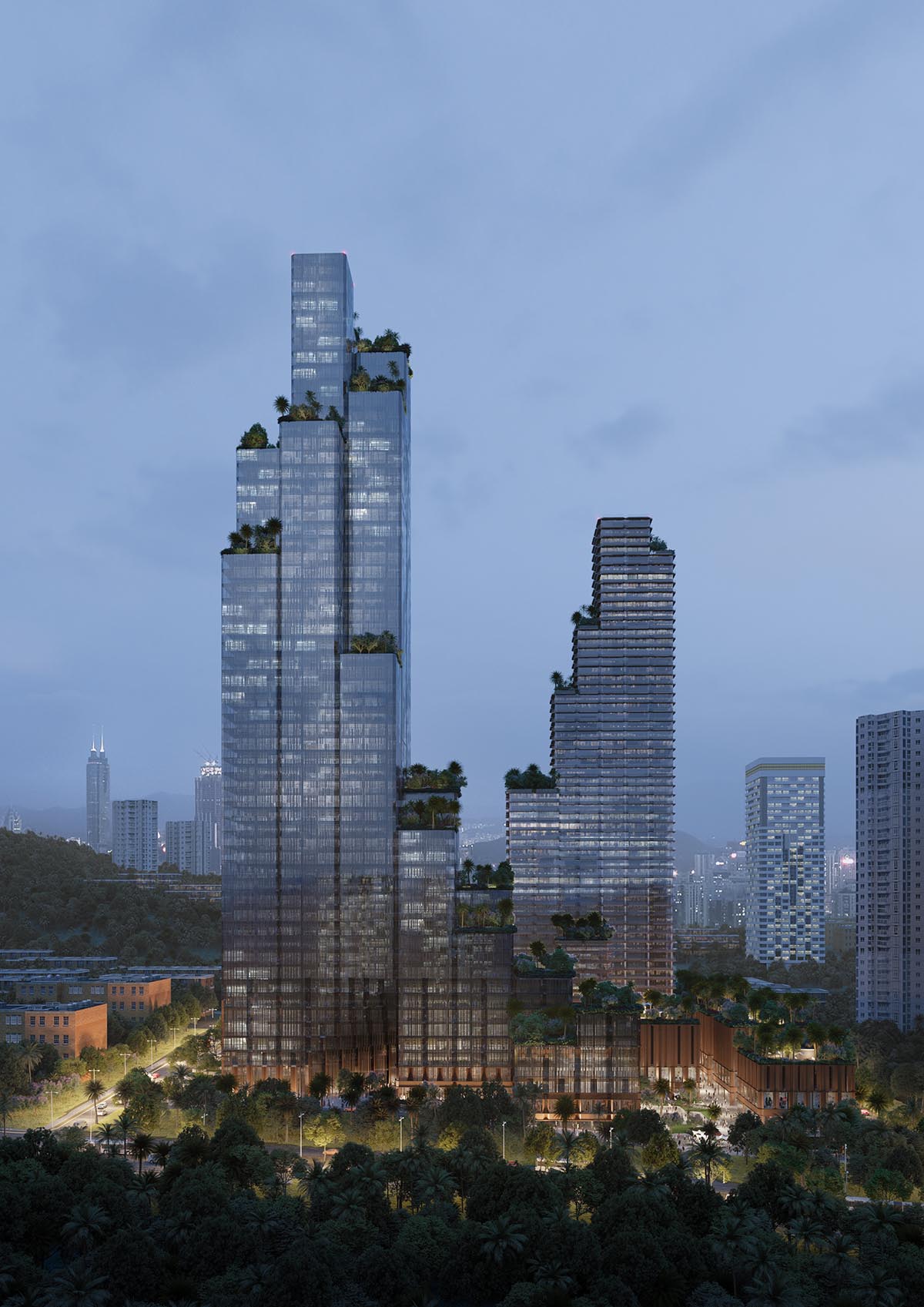
Mecanoo has revealed its competition proposal for the Konka mixed-use towers in Shenzhen, China. Named Konka mixed-use, the design takes inspiration from the small-scale urban tissue of historical Chinese towns, the complex uses a permeable urban fabric to allow pedestrian connections within the site and to all neighbouring areas.
Located on a sloping plot bordering the highway, the scheme consists of two facing towers, connected by a network of plazas and green terraces.
Submitted for a competition in 2018 and Mecanoo won the 2nd prize in the competition. The program of the towers include 160,000-square-metre offices with innovation/incubation spaces, 57,000-square-metre R&D (research and development) offices, commercial and business apartments.

"After 30 years of fast urban growth, Shenzhen has achieved the size of a world-class metropolis. At this point, the city is searching for new models for urban and architectural innovation to replace the traditional model of large-scale indoor shopping malls and focus on flexible development," said Mecanoo.
"The new Kang Qiao Jia Cheng development will provide an urban regeneration paradigm that is welcoming at street level as well as an imposing icon that fits Shenzhen’s skyline."
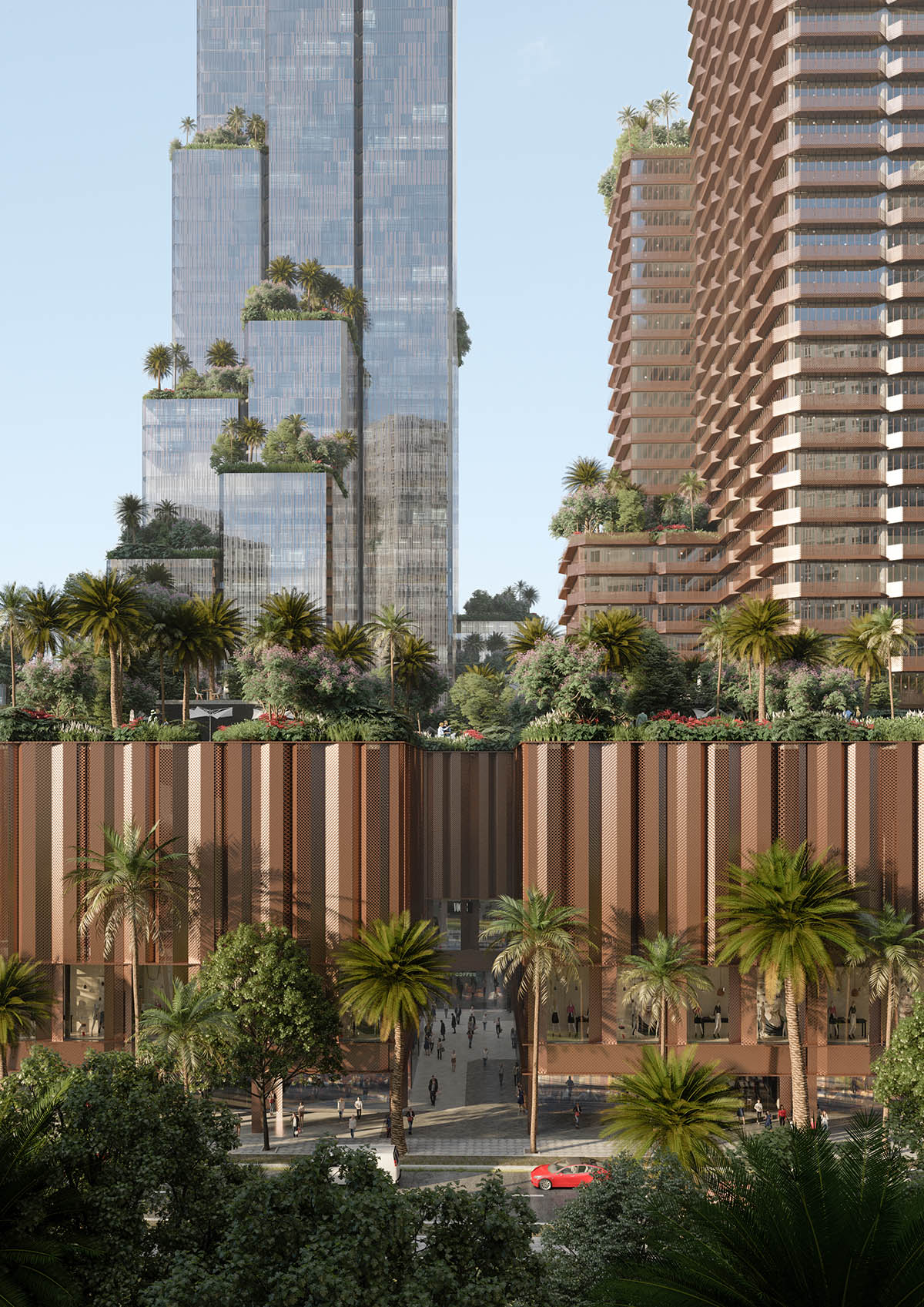
Mecanoo solves the height difference between the northwest and the southeast corner by creating two stepped platforms. Easily visible from the highway and soaring 280 m into the sky, the tallest tower occupies the south-western corner of the site. The building hosts the Konka Group Headquarters, an electronics manufacturing company with an international reach.
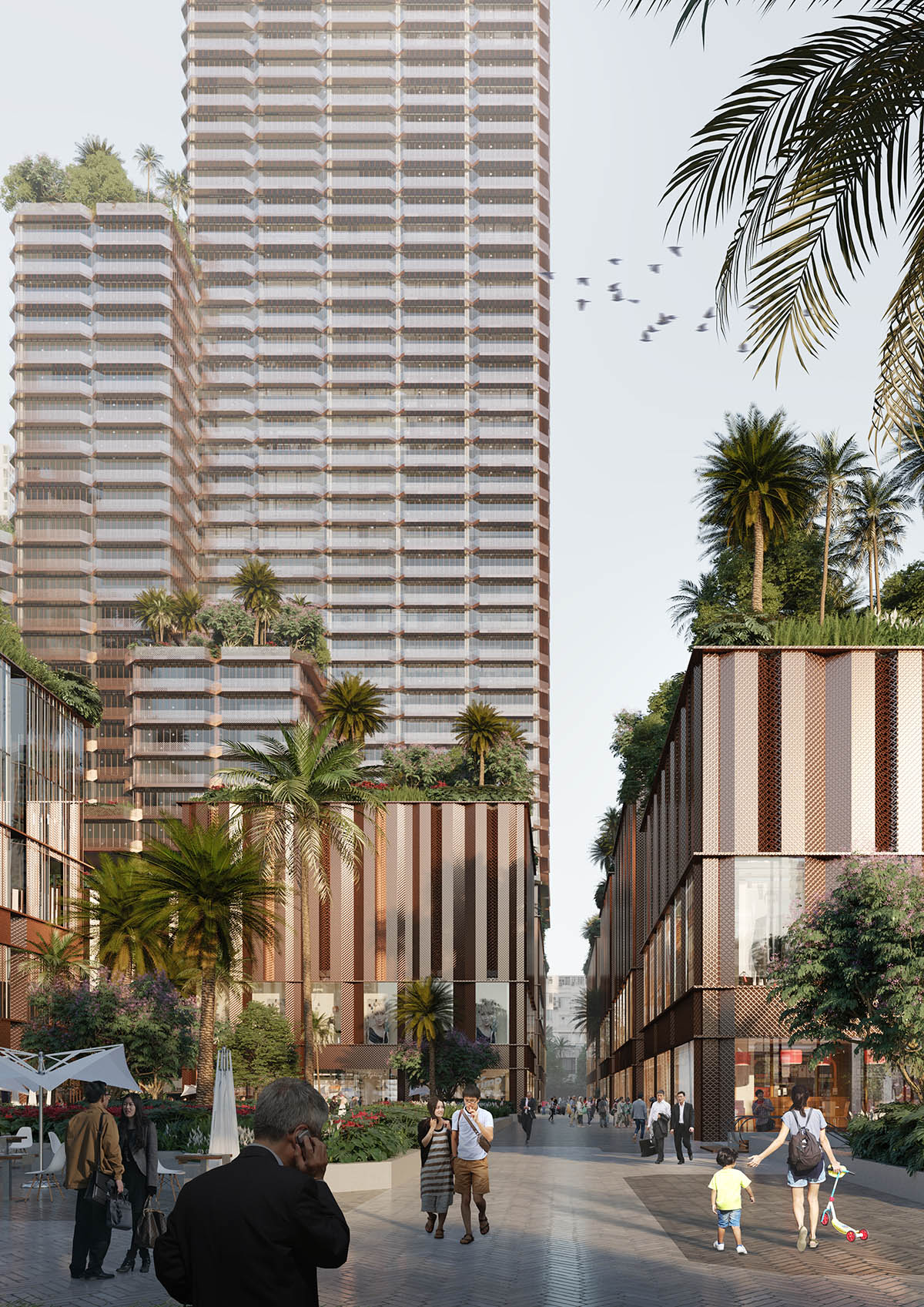
On the opposite corner, the business apartment tower provides panoramic views of Shenzhen Bay and the mountains towards north. Lower heights along Enping Street (east) achieve a smooth transition to the smaller scale of the surrounding buildings. By extending the pedestrian circulation network towards north, the complex will connect to the OCT (Overseas Chinese Town), a new upscale neighbourhood, home to many creative industries.
The spatial strategy for the urban design relies on a system that should work at different scales and maintain the building’s identity when seen from afar or up close. A 9×9 m grid system facilitates a smooth transition between the office tower and the smaller scale of the apartments, creating a rich and diverse urban space.
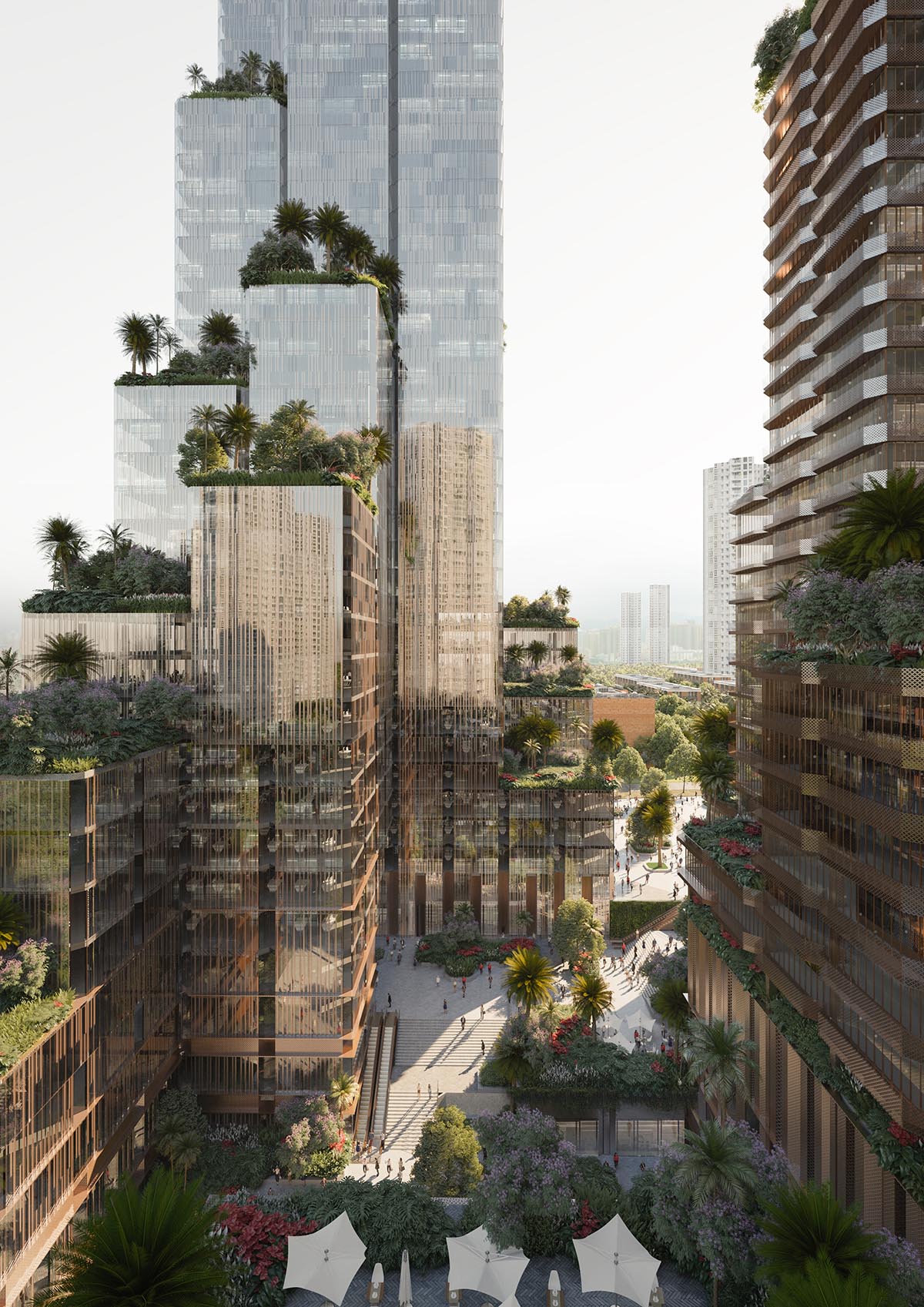
Pedestrian streets and passages cross the complex at different levels and connect the inner functions to the wider urban context. Porous and welcoming at street level, the building has a lively plinth that accommodates workshops, bookstores, retail and restaurants. Gradual setbacks shelter the entrance zones and open the building to a public passage that leads to the inner plazas. Three sunken squares connect to the B1 level, where a passage with retail areas will lead to the subway.
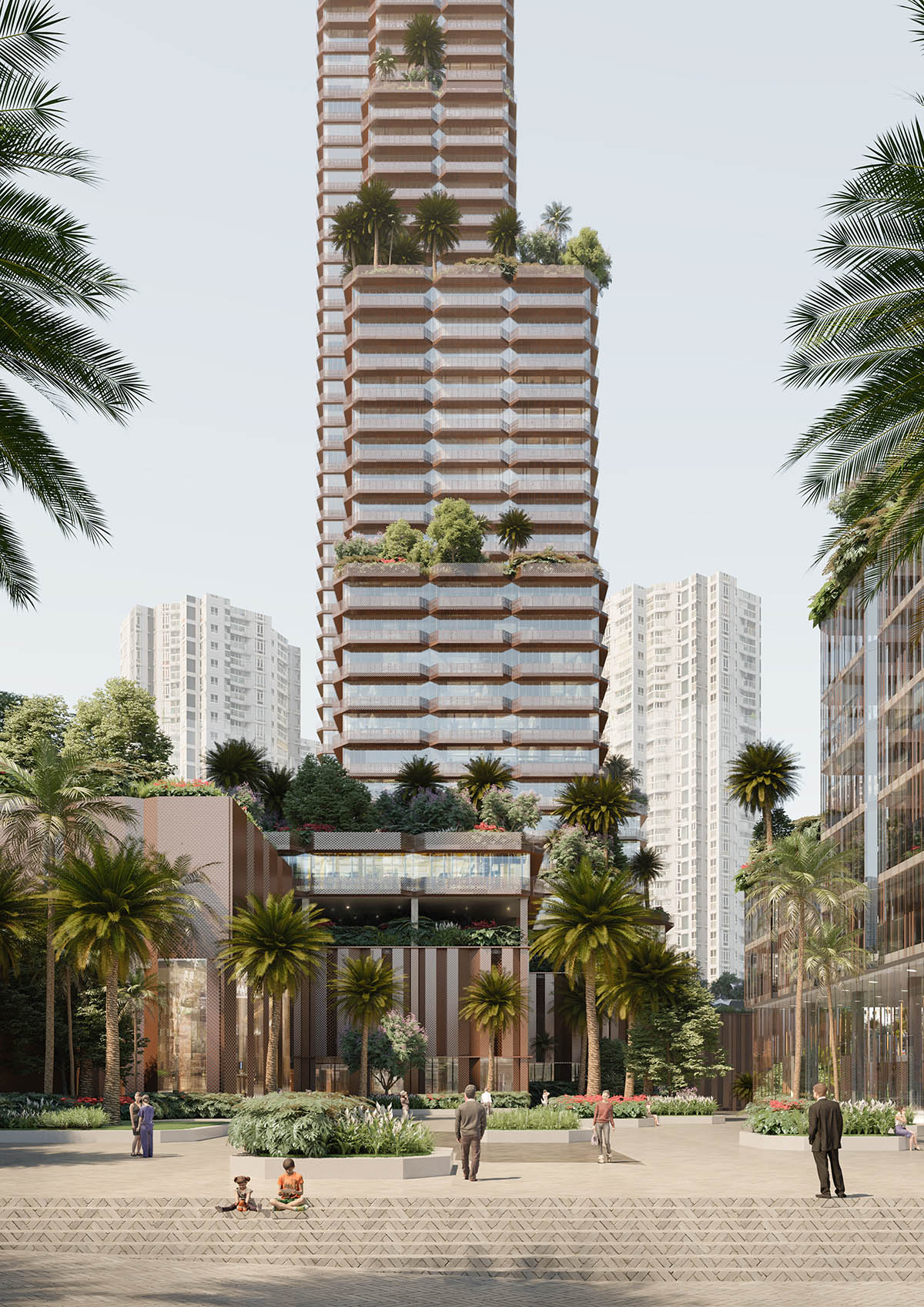
While the low retail buildings are mostly covered with perforated copper panels, the towers are transparent, reflecting Konka Group’s culture of openness.
On top of high-performance glass, a copper mesh accentuates the office tower’s bevelled modules. Using the same inclination, balconies with slanted sides surround all the levels of the business apartments tower. Throughout the development, the pattern and position of the panels reduce solar radiation and optimise daylight exposure.
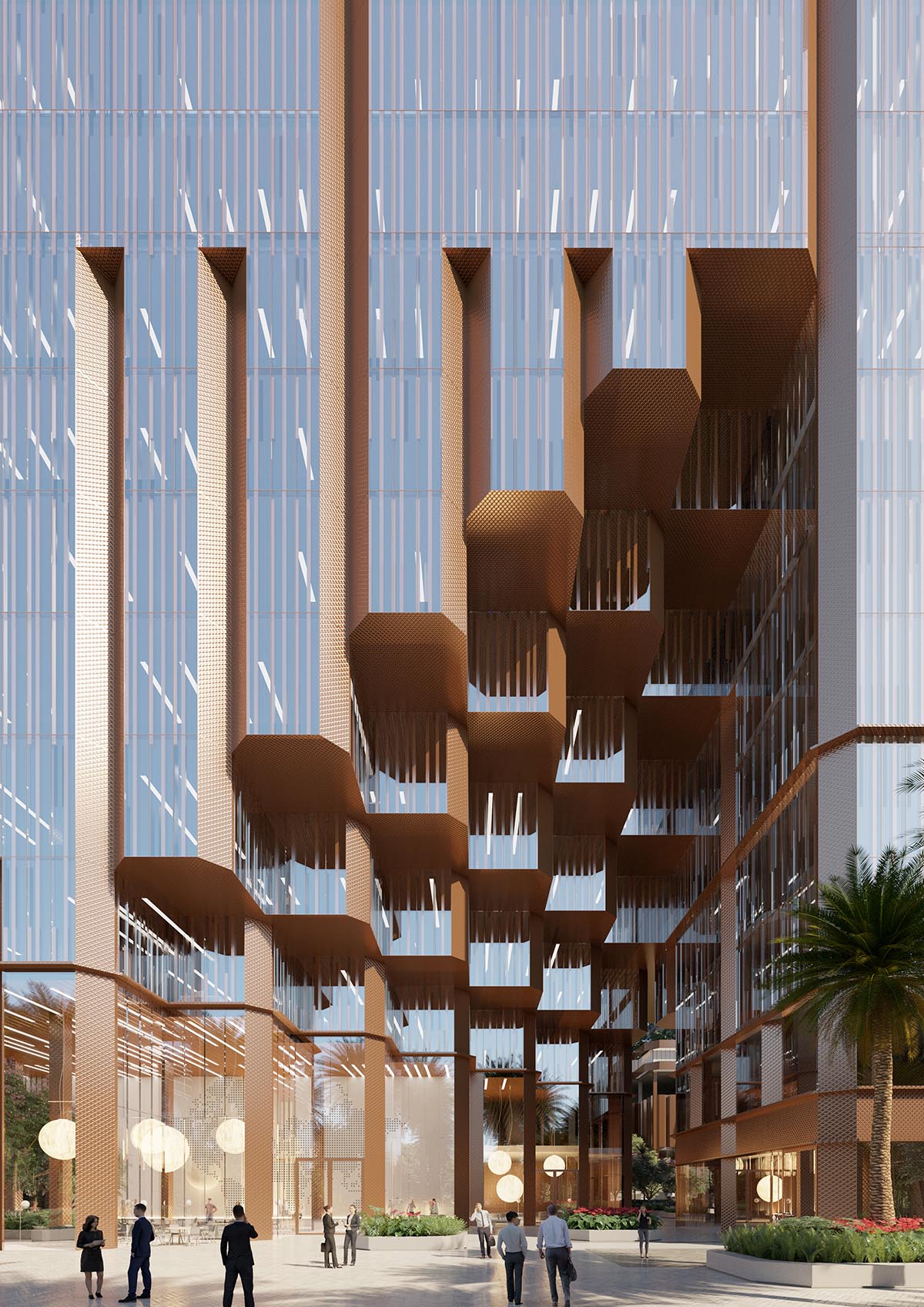
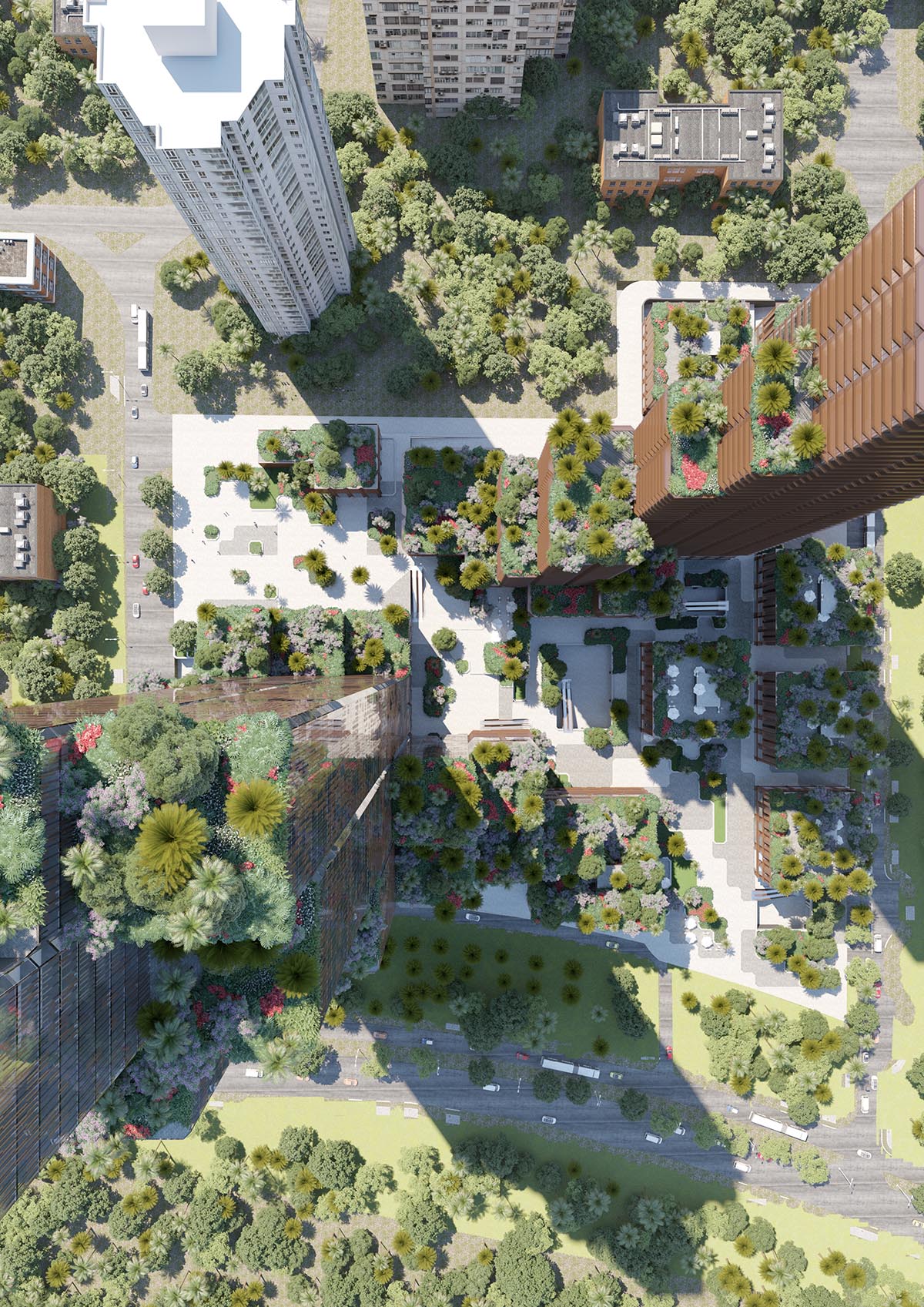


East elevation
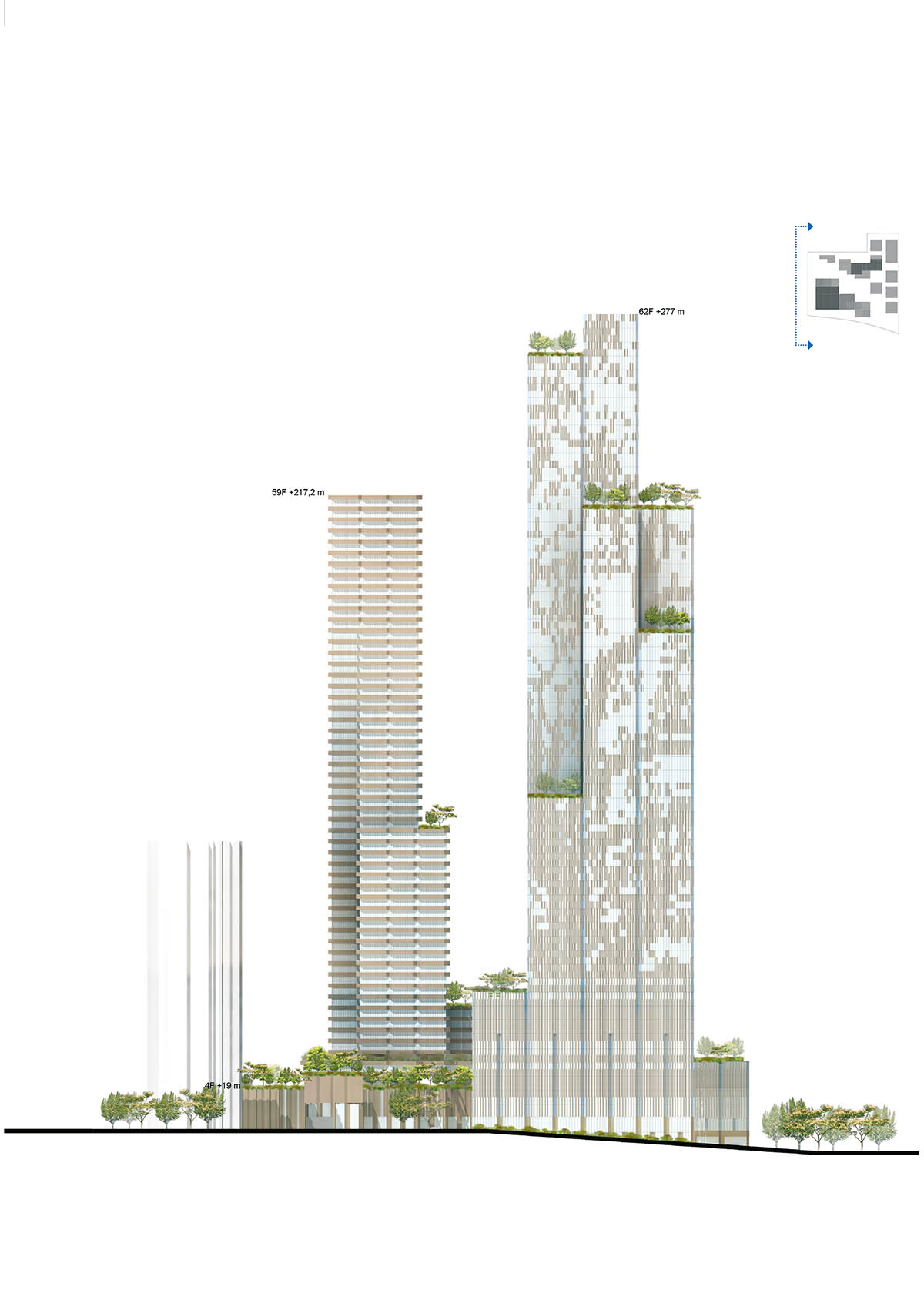
West elevation
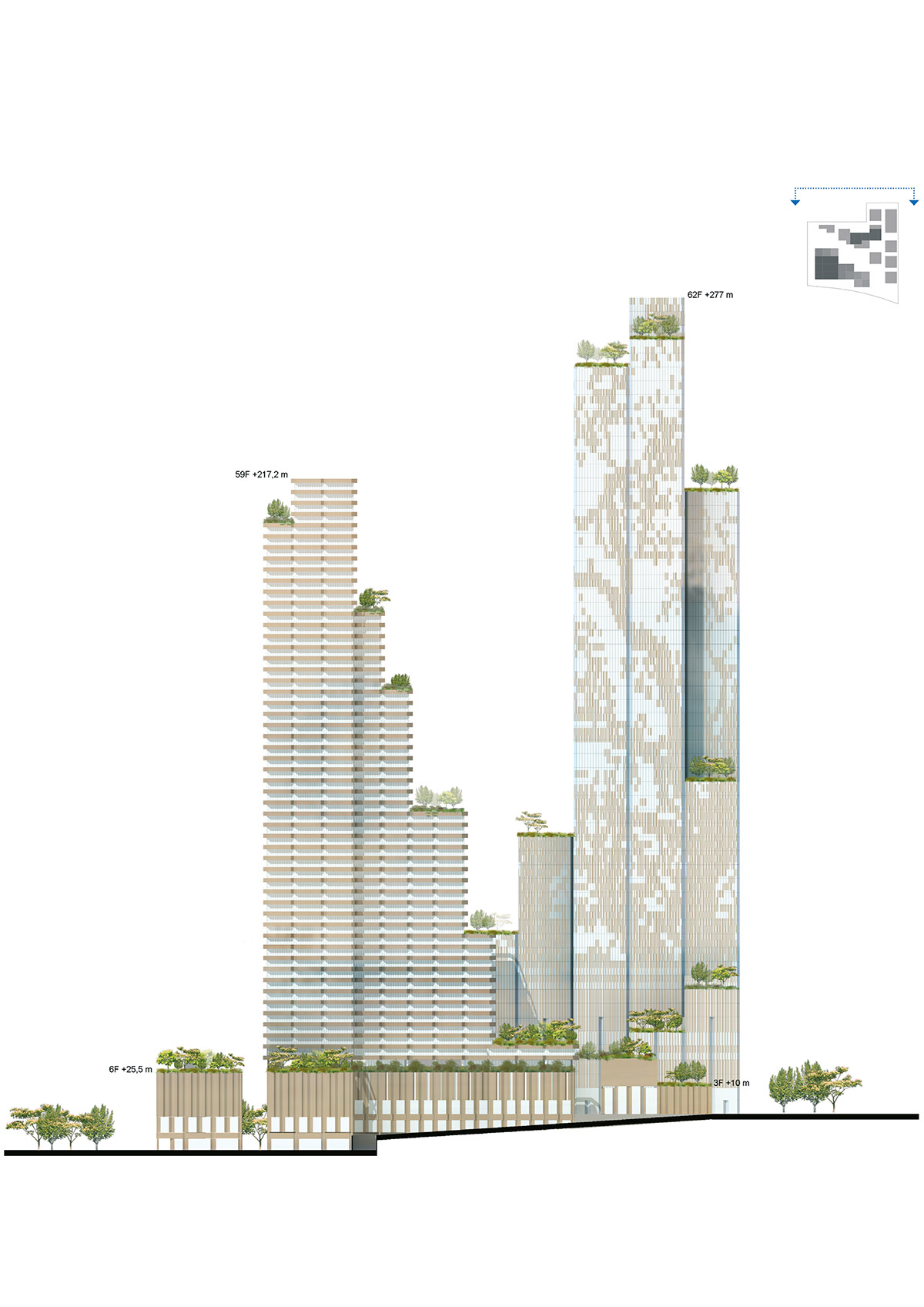
North elevation

South elevation
Project facts
Programme: Development of a 37,250 m2 site and 327,000m2 mixed-use complex including 160,000 m2 offices with innovation/incubation spaces, 57,000 m2 R&D (research and development) offices, commercial and business apartments
Design: 2018, competition
Client: Shenzhen Overseas Chinese Hong Jiachen Real Estate Investment Co., Ltd.
All images courtesy of Mecanoo
> via Mecanoo